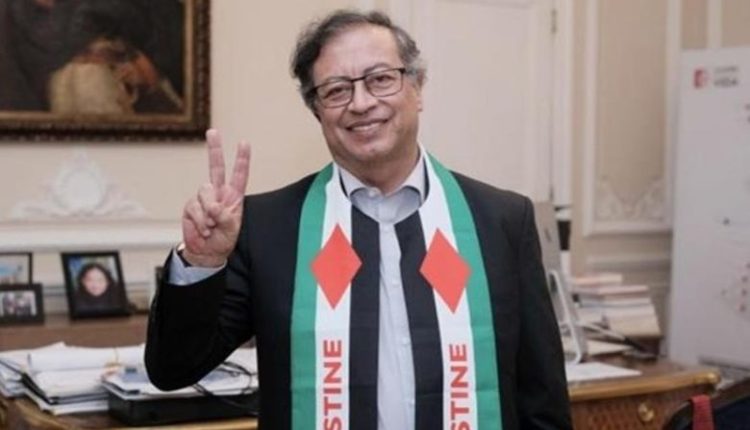A bold move against U.S. dominance — The Colombian president announces suspension of the free trade agreement with Washington
In a stance described by observers as one of the most defiant in Latin America in decades, Colombian President Gustavo Petro announced the suspension of the Free Trade Agreement with the United States, asserting that Washington violated the pact unilaterally — effectively freeing his country from economic constraints designed, he said, to keep Colombia “under American control.” The announcement, which came days after his decision to cut trade ties with the Israeli enemy and expel its diplomatic delegation from Bogotá, signals a strategic shift in Bogotá’s policies toward real independence from the American and Western spheres of influence.
An agreement suspended — and freedom reclaimed
In an official statement, the Colombian president said the United States breached the Free Trade Agreement unilaterally by imposing new customs duties that practically nullified the preferences that had previously been in place. He emphasized that Colombia had not violated any clause of the agreement and had been the party adhering to international law and treaty obligations.
Petro added a line that resonated across Latin American and international circles: “They have left us free — let us boldly embrace freedom.”
He explained that this historic development means Colombia is no longer constrained by Washington’s economic decisions, and that it is time to expand relations with Global South countries and emerging markets — away from the American dominance that he argues shackled Colombia’s capabilities for decades.
A direct accusation against Washington: control dressed as preferences
The Colombian president accused the U.S. government of breaching the agreement through unilateral tariff measures, saying these actions “undermined the very essence of the pact and revealed its true purpose: to control Colombia through the economy.”
He added that the tariff preferences Washington once offered were not a benevolent gift but “a pressure tool to ensure economic dependency,” and asserted that the Colombian people now have a historic opportunity to determine their destiny and redirect their economy according to national interests rather than Washington’s dictates.
Petro pointed to earlier remarks by U.S. President Donald Trump, who said Colombia had “gotten out of control,” arguing that such statements accurately reflect the new reality — that his country is indeed exiting the circle of American control and embarking on an independent path befitting free, sovereign peoples.
Context — a gradual disentanglement from U.S. and Israeli influence
The announcement follows a series of bold decisions by President Petro in recent weeks, including cancelling the free trade agreement with the Israeli enemy and expelling its diplomatic delegation from Bogotá in protest at what he described as the occupation’s genocidal crimes in Gaza.
Petro has also previously called for relocating the United Nations headquarters from New York after Washington revoked his visa because of his pro-Palestine stance, arguing that the U.S. no longer respects international law or the sanctity of global institutions.
Analysts say these successive moves represent a fundamental shift in Colombia’s official posture: under Petro, Bogotá appears to be joining a new global axis challenging American hegemony, alongside Global South forces and countries advocating justice and national freedom.
A message to free peoples: do not fear freedom
In a speech broadcast on national television, Petro closed his statement with an emotional appeal to his people and the peoples of the Global South:
“Do not fear freedom — the whole world lies before us. Let us explore it and build partnerships based on dignity and mutual interest.”
Observers saw this as a renewed cry for liberation from the heart of Latin America, evoking the language of Simón Bolívar and the continent’s long struggle against old and new forms of colonial domination.
Colombia opens a new chapter of sovereignty
With this decision, Colombia has entered a new phase in its political and economic history, joining the ranks of countries that dared to break Washington’s monopoly and influence — declaring that the era of dependency is over.
It is a move that redefines the meaning of freedom in an age when the U.S. is accused of using economic instruments as tools of control, while leaders in the South raise their voices to say, as Petro put it:
“They have left us free — let us choose our path with our own hands.”

